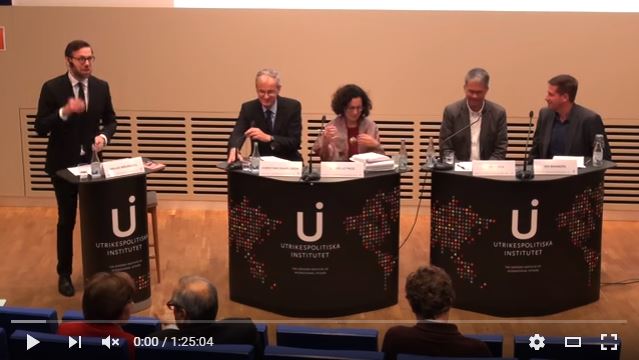
Europe and its Southern Neighbourhood: Promoting Change or Maintaining Instability?
The Swedish Institute of International Affairs (UI) arranged a discussion on the EU’s ability to promote political reforms and economic development in its Southern neighbourhood in the face of increasing regional instability.
The Arab spring in 2011 brought hopes of a new era of political transformation and enhanced cooperation between the EU and partner countries in North Africa and the Middle East. However a few years later, the Southern neighbourhood, with a few exceptions, is characterized by stalled reforms, authoritarian backlash and civil strife. On top of that, a refugee crisis is mounting in Europe and the neighourhood.
As of 2015, the European Neighbourhood Policy (ENP) – the EU’s flagship initiative – is being revised. What lessons have the EU learned since the last ENP revision? What should the EU focus on in the future? Is the EU, as is sometimes claimed, powerless to influence more fundamental developments in its Southern neighbourhood?
Speakers:
Christian Danielsson, Director-General for Neighbourhood and Enlargement Negotiations at the European Commission.
Michelle Pace, Professor MSO within The External Relations of the European Union with special emphasis on the relations with the Middle East at the University of Roskilde.
Thomas Diez, Professor of Political Science and International Relations at the University of Tübingen.
Ian Manners, Professor at the Department of Political Science at the University of Copenhagen.
The seminar will be moderated by Niklas Bremberg, Research Fellow at UI's Europe Programme.
Welcome!